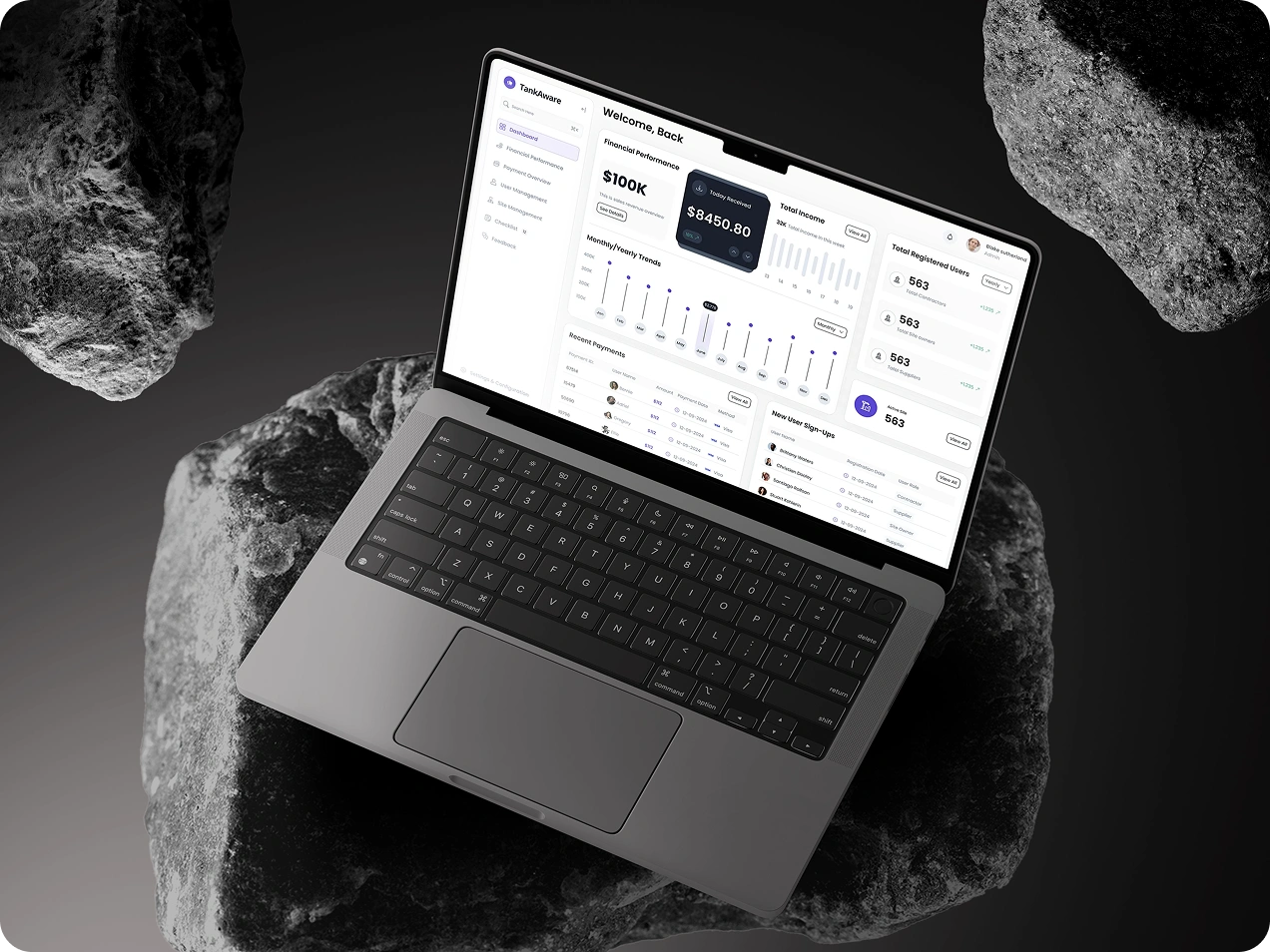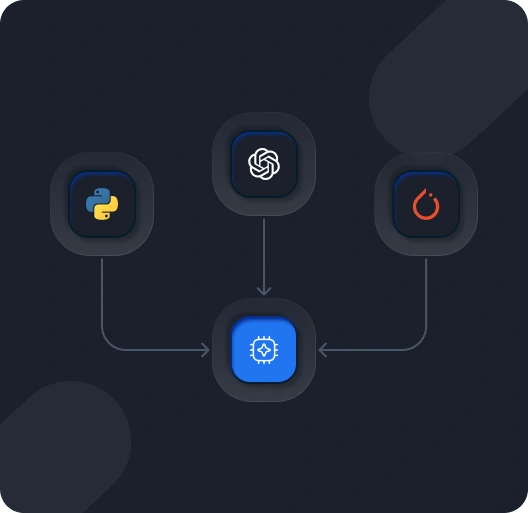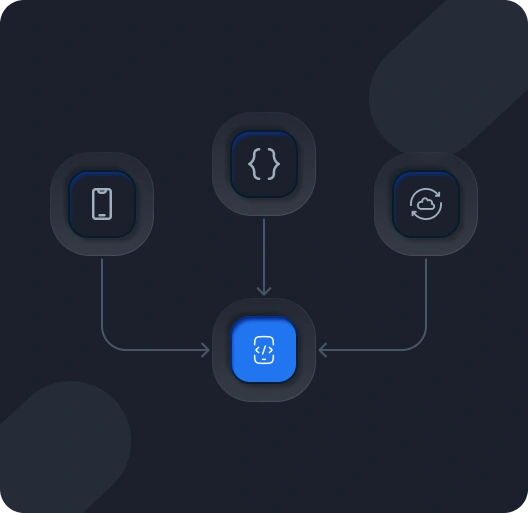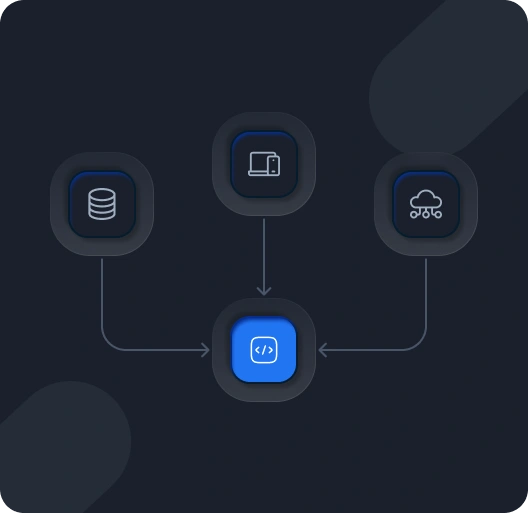
Transforming Chaos Into Savings—$5M+
and Countless Hours Back
AI-Automated Services Built for the Fast-paced Future

Innovate, Automate, Accelerate: Our AI-Driven Expertise
Facing a challenge? let AI lead the way
WHY SCALE A DEV TEAM,
WHEN YOU CAN SCALE OUTPUT
From cutting down development time by 93% to shipping over 1000 code modules every week.
LAUNCH 10X FASTER
AI prototypes in 72 hours
CUT COSTS BY 60%
Just senior engineers + AI
OWN YOUR IP
Custom-trained models, no off-the-shelf solutions

6 people
6 months
$300k
2 engineers +AI
3 weeks
$90k
Struggle With Delays or Soar With AI
You have two choices — You Decide
Workflow Jam
Or Switch to Hashlogics
Mastering AI and Automation Across Leading Platforms
Hashlogics excels in custom-coded automation but specialize in AI-powered no-code platforms to drive innovation. From Zapier and Make.com to Slack and ClickUp, we integrate AI-driven workflows seamlessly. Using APIs, custom code, and webhooks, we unlock automation across thousands of tools—helping businesses scale smarter and faster.
SUCCESS STORIES THAT SPEAK FOR THEMSELVES.
When AI meets execution, here is what our clients have to say about it
Transforming Businesses,
One AI Solution at a Time
Here's how we've helped our clients turn ideas into tangible, game-changing products.
Stay Ahead of the Curve with the Latest in AI, Tech, and Software Development
Explore our blog for expert insights, industry trends, and actionable advice that can accelerate your business and product development with AI-driven solutions.

How RPA, AI-Powered RPA, and Agentic Automation Drive the Future of Intelligent Automation
Discover how AI is transforming the software development lifecycle, from code generation to testing and deployment.

Agentic AI & LangChain: Revolutionizing Software Development
Explore the latest machine learning trends and how they're creating competitive advantages for forward-thinking companies.

Modular AI Automation with Make.com and n8n: Building Smart, Scalable Workflows
Learn the best practices for developing AI solutions that can grow with your business needs and adapt to changing requirements.

From Code to Capability: Building AI-Ready Applications with Replit and Automation Anywhere
Understand the ethical considerations in AI development and how to build responsible, transparent AI systems.
EVERYTHING YOU NEED TO KNOW ABOUT OUR AI SOLUTIONS
Yes, our AI automation solutions integrate smoothly with CRM, ERP, Microsoft 365, Azure, and industry-specific applications. This ensures efficient data flow and minimal operational impact.







